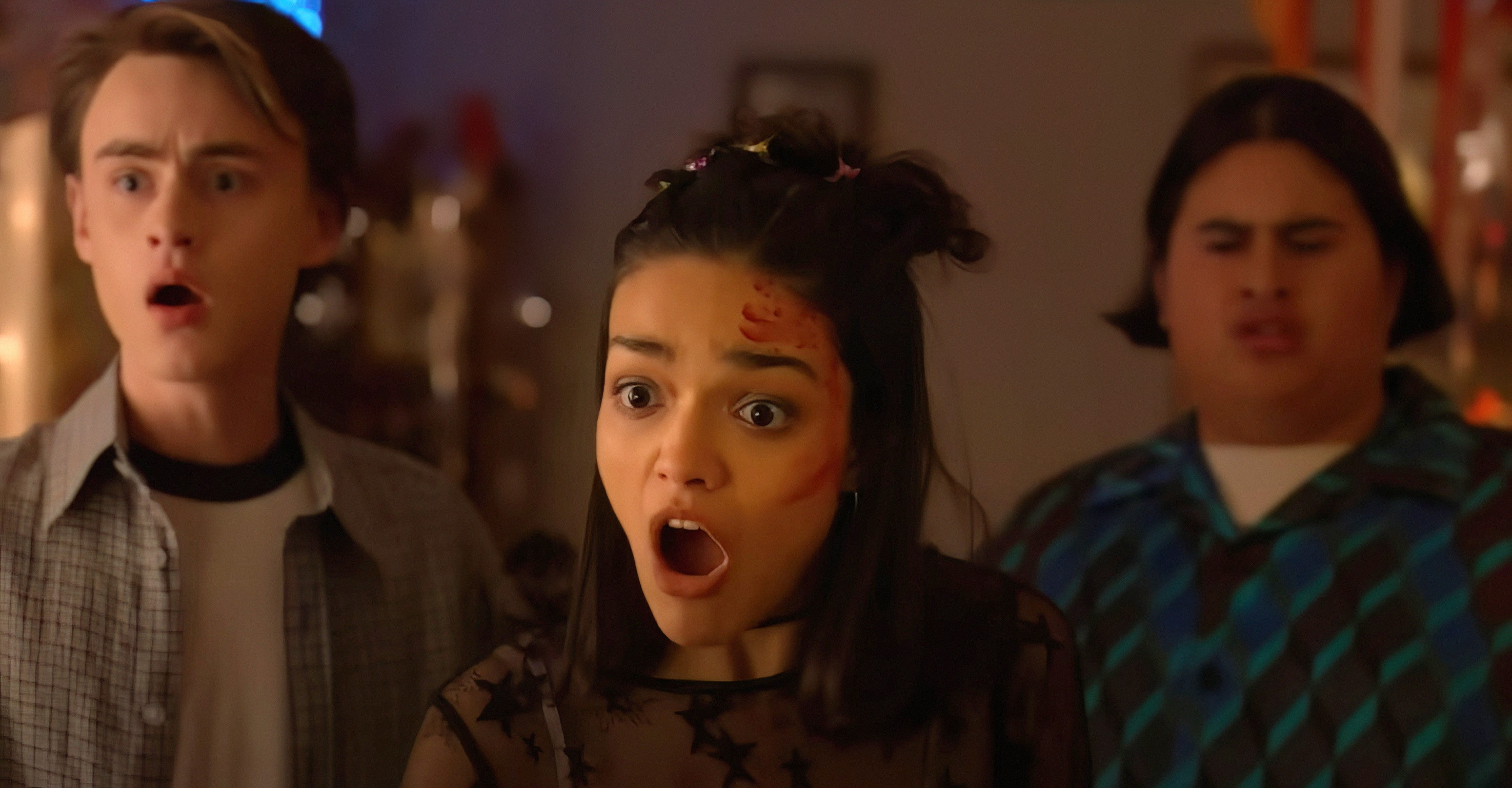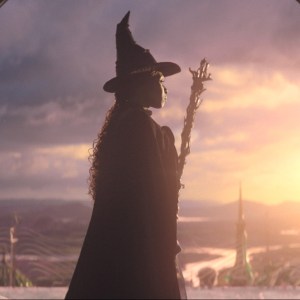By providing your information, you agree to our Terms of Use and our Privacy Policy. We use vendors that may also process your information to help provide our services. This site is protected by reCAPTCHA Enterprise and the Google Privacy Policy and Terms of Service apply.
“X-Men: First Class” is a Fantastical Trip Through History and Interchangeable Subtexts

The following is a lengthy discussion of elements of “X-Men: First Class” which contains some minor spoilers.
When Matthew Vaughn recently said he’d like the next “X-Men” movie to kick off during the JFK Assassination, with Magneto (Michael Fassbender) directing the infamous “magic bullet” and presumably Mystique (Jennifer Lawrence) taking on the shape of everyone from Lee Harvey Oswald to Kennedy’s corpse, I immediately thought of “Forrest Gump.” Now that the franchise has gone back fifty years for a series of prequels, we can possibly look forward to the mutant heroes and villains alike having photo ops with Andy Warhol, rocking out at Woodstock and even participating in the Watergate break in. But unlike the one-character-spanning-eras “Wolverine” prequel, “X-Men: First Class” is not really so much “Forrest Gump” (or NBC’s timeline-hopping, history-humping “The ’60s” mini-series) as it is more of a “Men in Black” mentality, but instead of implying aliens have been significantly involved at every stage and event of history, here it’s genetically evolved super-men. Fittingly, the next “Men in Black” film is also set in that decade America can’t stop obsessing over. And Warhol is indeed a confirmed part of it.
I’d love to say “X-Men: First Class” is the movie “Watchmen” wanted to be, but really “Watchmen” the graphic novel is the thing that “X-Men: First Class” wants to be, in a way. Yet “Watchmen” deals in alternate history whereas “X-Men” is working strictly in historical fantasy. For the most part events are not really meant to be different from what occurred in actual history. They just are employed here to incorporate these fantastical characters as participators and maybe also the true causes (it’s like the X-Men are to history what everyman photojournalist Phil Sheldon is to super heroes, including the X-Men, in the 1994 comic series “Marvels”). At the point in which “First Class” ends it’s hard to figure the world isn’t headed for the diverged universe of “Watchmen” — I can picture a mutants-only draft leading to a U.S. victory in Vietnam courtesy of superpowers. However, if we’re to accept at least some continuity with the preceding “X-Men” films, there’s not really too much major different in this world (aside from there existing super powered people, that is) until the Great Golden Gate Bridge Levitation of ’06.

Fantastical History
Surely the title character of “The Curious Case of Benjamin Button” would fit in at Xavier’s School for Gifted Mutants more than Gump would, though his lack of magical mutation might lead him ultimately to the Morlocks. Considering “First Class” as feeling very much like a script by Eric Roth — who not only penned “Gump” and “Button” but also “The Good Shepherd” and “Munich,” both of which this prequel evokes at times — the Button thematic link to Dorian Gray comes to mind (as does a direct mention in the film of Dr. Jekyll and Mr. Hyde) and with it further contemplation of “The League of Extraordinary Gentlemen,” which I brought up days ago, inspired by this film, as being in need of a reboot itself. Part of what makes the “League” comics so much fun, and it must be pointed out as being another creation of “Watchmen” writer Alan Moore, is conceptualizing this kind of historical fantasy. But as FilmDrunk’s Vince Mancini jokes in his “First Class” review, we have to wonder how far the tentacles of fiction reach:
I’d love to seem them re-tell some of history’s other retarded episodes through use of the fantastic. Salem Witch Trials? Mutants. Spanish Inquisition? Mutants. Violating the Ribbentrop-Molotov act? Totally mutants, and the Library at Alexandria only burned down because of a drunken satyr.
This comes after Mancini’s mention of how Kevin Bacon’s character, Sebastian Shaw, goes from being a Nazi doctor involved in the “Mengele-style” human experimentation to a yachting Hefner-like playboy looking to destroy the world through nuclear war rather than pornography (no, there’s not actually any wink to the obscenity trials of the period among its subtextual references, though Shaw does head the Playboy-ish Hellfire Club). But while it might be neat for X-Men to go from Salem Center to Salem, Mass., as Mancini suggests (and sure the Witch Trials are good for cross-chronological allegory), let’s think about the major benefit — outside of our romantic nostalgia for the times, and the metaphoric buffet the film feasts on, which I’ll address in a second — for “First Class” being set from 1944 to 1962 is the combined fortune of being able to involve Nazis and Russians.

Swastikas and Sickles
Let’s recall that until 9/11, Hollywood was at a 12-year loss of easy villainy for American action films post-Cold War (and even after 9/11, some political correctness kept certain generalized sorts of enemies off limits). Going with a period setting, action movies get to re-employ baddies like Hitler and the Communists. Obviously we already know this from “Raiders of the Lost Ark” and its many sequels and copycats over the past few decades. Strangely enough, though, the Cold War in the ’60s, pop culture-wise, was smarter and aesthetically sleeker than either “Indiana Jones and the Kingdom of the Crystal Skull” (which pre-dates the ’60s by a few years, still) or now “First Class.” At least the latter starts out evoking early James Bond before actually venturing backwards, tonally, to adventure and monster B-movies of earlier decades (not that this is bad — one moment involving Magneto and some tooth fillings is the best B-horror-inspired comic book movie scene since Doc Ock’s medical transformation in “Spider-Man 2”).
The thing is, though, neither the Nazis nor the Soviets really get to be employed by villains in “First Class,” which seems to relate to why Karina Longworth has an issue with the revisionist history here. The SS almost get a pass through the movie because it’s Shaw who is the truly evil Nazi, first as the mad scientist and later as he’s hellbent on an even wider Holocaust for all homo sapiens. Sure, there are some other Germans who are deemed executable by the young Magneto, even if they were “just following orders,” yet Xavier’s MLK-style forgiveness message would imply they’re not actually deserving of such punishment. Meanwhile, again, it’s not the Russians who nearly caused WW3 in the fall of ’62. That’d again be Shaw. The Russians aren’t even guilty of great mind-control powers, only the buffoonish victims of such — at the telekinetic-hands of both the good guys and the bad.

Civil Wrongs
Okay, so here’s a major issue I have with “First Class”: it misses so many opportunities for the allegorical smorgasbord it’s dealing with. Mind control not properly referencing “Manchurian Candidate”-type Cold War experimentation is one thing. Not fitting in some allusion to the HUAC or some sort of parallel between mutants and Reds is another. Sure, subtlety in subtext is fine, as enough viewers get the MLK and Malcolm X dichotomy going on with Xavier (James McAvoy) and Magneto. Of course, this has been obvious since Stan Lee created the X-Men only a year after this film takes place (wait, were there really mutants involved in the Cuban Missile Crisis and they inspired Lee in the first place?). But the film also strangely ignores the Civil Rights Movement for the most part and even denies blacks enough empowerment to live through fight scenes (I’ll at least choose to accept Edi Gathegi/Darwin’s demise in spite of his power to adapt as a commentary on comparative assimilation difficulties for his race).
I find it a little odd how many reviews I’ve seen for “First Class” that narrow in on the reading of mutants as metaphors for gays. Never mind that “X2: X-Men United” took care of that subtext perfectly with its coming-out scene, and more. But besides a comment from Beast (“Nicholas Hoult, who also played the boy-toy in A Single Man!”) evoking “don’t ask, don’t tell,” and maybe some “out and proud” statements (though I take the pride stuff to be more relevant temporally to Malcolm X/Nation of Islam), it’s not really that present. And why should it? Not to say that there were no homosexuals in the early 1960s or that there was no gay rights issue at the time, but it wasn’t yet the kind of culturally conscious thing that plays into subtextual relevance the way movies like this deal in. Yes, there’s room for that hint of acknowledgment that they were around, that they’d too been persecuted by the Nazis and continued to be outcasts — in fact a kind more easily blended into the crowd the way most non-blue mutants, yet not blacks, could. Of course, there’s also room for currently compatible relevance to be linked through a gay metaphor as much as there’s room for the Salem Witch Trials to represent HUAC (ah, so maybe mutants were there and then, Vince?). But whoever it is I saw claim that Xavier and Magneto had some sort of gay mind sex clearly went overboard.

Brotherhood of Evil Discriminated-Against Mutants
We can obviously read into things ludicrously, and often it’s fun. Can we link a joke about Beast’s presumed penis size to the fact that he later ends up “colored” just like Mystique, who initially represents the desire for cultural assimilation before later considering the “dark” side comprised of other ethnic minority types (Magneto is Jewish, Angel is black, Riptide is Hispanic and Azazel is Native American, I guess — I don’t know how the white, blonde Emma Frost fits, though)? Actually most of that is likely intentional. And you can bet the Civil Rights movement will be coming into play even more in the sequel. But what else is in store? John Lennon being revealed to be a mutant? The Shi’ar assist in the Space Race? Dazzler and Longshot are introduced at the Monterey Pop Festival? I just hope “Turn, Turn, Turn” is on the soundtrack at some point — maybe when the obscure mutant known as Whirlwind shows up?
“X-Men: First Class” is now playing theatrically everywhere.
Recommended If You Like: “X2: X-Men United”; “Forrest Gump”; “Men in Black”
Follow Spout on Twitter (@Spout) and be a fan on Facebook
Follow Christopher Campbell on Twitter (@thefilmcynic)
By providing your information, you agree to our Terms of Use and our Privacy Policy. We use vendors that may also process your information to help provide our services. This site is protected by reCAPTCHA Enterprise and the Google Privacy Policy and Terms of Service apply.

















